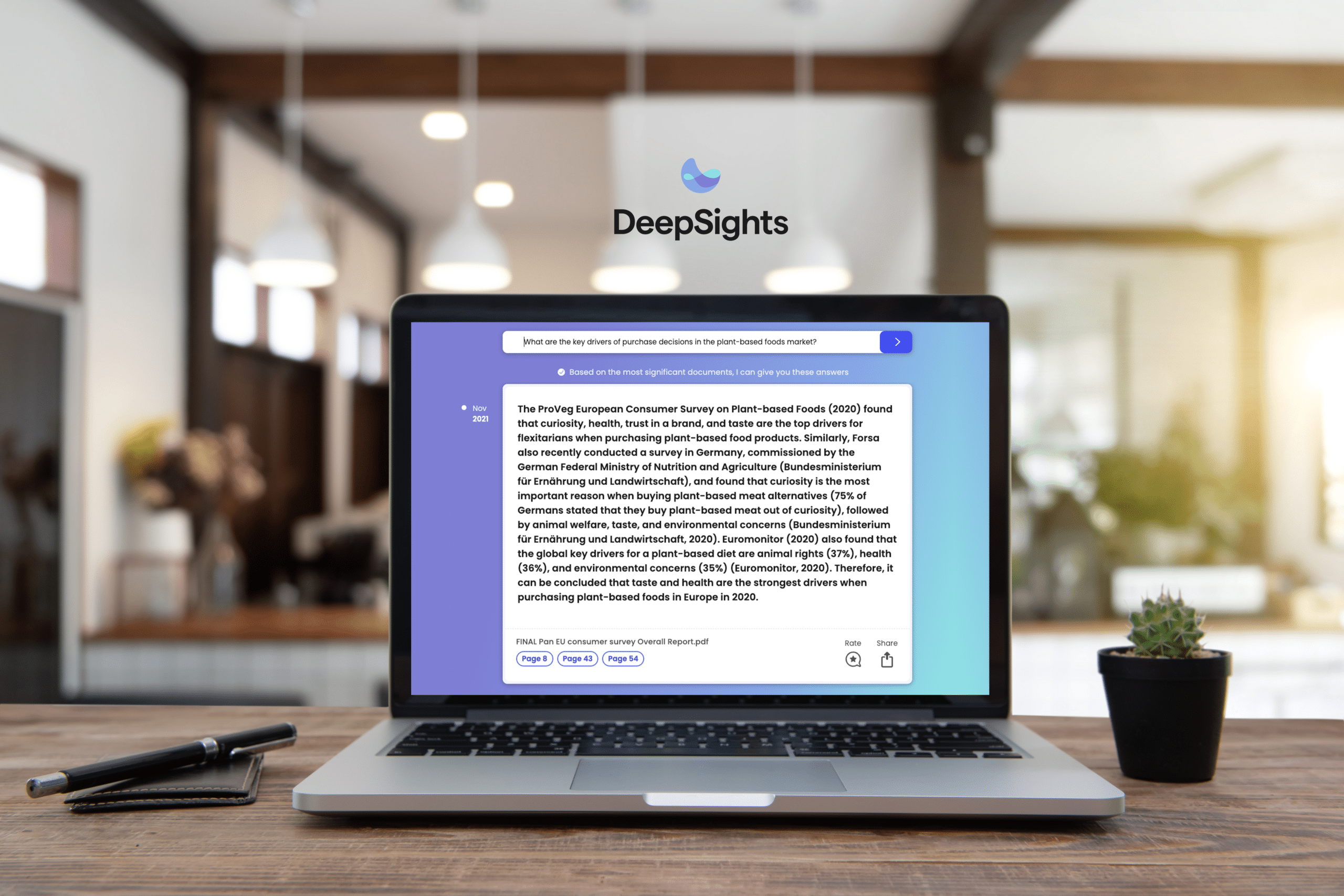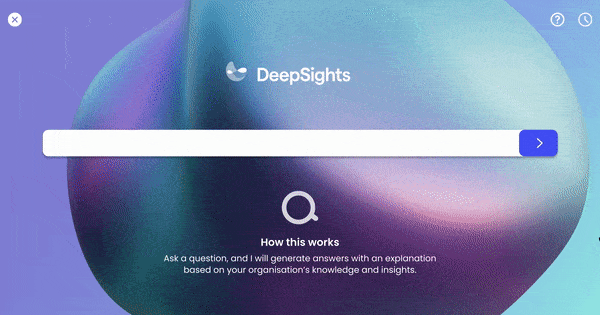Enterprise knowledge management represents a critical strategic challenge for modern organizations. As companies grow in complexity and size, the ability to effectively capture, organize, manage, and leverage organizational knowledge becomes increasingly difficult at scale.
Mismanaging knowledge assets can result in substantial organizational risks. Incomplete or poorly organized information leads to inefficient decision-making, missed opportunities, and reduced competitive advantage. Large enterprises generate massive amounts of data and insights daily, but without a structured approach to knowledge management, these valuable resources remain underutilized or completely inaccessible. This is where AI and automation come into play, offering powerful tools to capture, organize, and analyze information at scale, ultimately mitigating these risks and unlocking the full potential of enterprise knowledge.

In this comprehensive overview, we’ll uncover a detailed exploration of enterprise knowledge management and demonstrate how it requires different levels of attention from organizational leaders compared to the knowledge management systems implemented in smaller-scale businesses. By examining its core components, implementation strategies, and emerging trends, organizations can develop more effective approaches to managing their most critical intellectual asset on the enterprise level: knowledge.
What is enterprise knowledge management?
Enterprise knowledge management is the same as knowledge management: A strategic approach to capturing, organizing, sharing, and maintaining an organization’s collective knowledge. Unlike knowledge management in smaller organizations, however, enterprise-level knowledge management operates on a significantly more complex and comprehensive scale.
While smaller organizations might manage knowledge through basic sharing platforms or informal communication channels, enterprise knowledge management requires robust, scalable systems that can handle vast amounts of information across diverse teams, geographical locations, and business units. They also require more stringent information governance protocols to ensure the accuracy, security, and compliance of data at such a large scale.
While any knowledge management system needs to provide core search functionality — the ability to quickly locate and retrieve a specific document, policy, or piece of information — enterprise knowledge management expands on these functionalities. It also aims to consolidate a broader range of information, including market intelligence, customer insights, and internal expertise, to drive better decision-making across the organization.

The core components of an enterprise knowledge management system
An enterprise knowledge management system encompasses several critical components that work together to create a comprehensive knowledge ecosystem:
- Knowledge capture: This is the process of identifying, collecting, and documenting both explicit and tacit knowledge from various sources within the organization. It involves systematically gathering insights from employees, documenting best practices, recording project learnings, and ensuring valuable information is preserved and accessible.
- Knowledge storage and organization: Once captured, knowledge must be systematically stored in a centralized repository that is easily accessible and logically organized. This component focuses on creating a structured approach to information management, ensuring that knowledge can be quickly retrieved and effectively utilized across the organization.
- Knowledge sharing and access: Creating mechanisms that enable seamless knowledge circulation is crucial. This involves developing collaboration tools, establishing communication protocols, and ensuring that employees can easily access the right knowledge at the right time, regardless of their location or department.
- Knowledge application: This component transforms stored knowledge into actionable insights. It focuses on how organizations can leverage their knowledge base to improve decision-making, solve complex problems, drive innovation, and create competitive advantages.
- Knowledge maintenance: Knowledge is not static and requires continuous updating, validation, and refinement. This involves regularly reviewing, updating, and pruning knowledge assets to ensure their ongoing relevance, accuracy, and value to the organization.

Additionally, AI and automation play an increasingly critical role in an enterprise knowledge management system. These technologies are transforming how organizations capture, store, share, and apply knowledge, enabling greater efficiency, scalability, and insight generation. By selecting trusted AI-powered knowledge management tools and integrating them strategically, organizations can optimize each component of their knowledge management processes and unlock the full value of their intellectual assets.
The benefits of implementing knowledge management for an enterprise-level organization
With mounting pressure to innovate, improve efficiency, and deliver exceptional customer experiences, enterprise organizations must find ways to outmaneuver their competitors. To achieve these goals and reap the benefits of knowledge management, it’s essential to harness the collective knowledge and expertise within an organization.
Implementing a robust knowledge management system offers numerous benefits for meeting these challenges and achieving these goals:
Improved decision-making
Effective knowledge management provides decision-makers with comprehensive, accurate, and timely information. By consolidating insights from across the organization, leaders can make more informed, data-driven decisions. The absence of a structured knowledge approach, especially at the enterprise level, can lead to fragmented, incomplete decision-making processes that potentially harm organizational performance.
Accelerated innovation
A well-managed knowledge ecosystem becomes a springboard for innovation. By facilitating knowledge sharing and the cross-exchange of ideas, organizations can identify emerging trends, spark creative solutions, and develop breakthrough strategies more rapidly than competitors.
Enhanced customer experience
Centralizing customer information and insights allows organizations to create more personalized, responsive customer experiences. Knowledge management enables teams to quickly access customer history, preferences, and interaction records, leading to more effective problem-solving and relationship management.
Competitive advantage
Organizations that effectively manage knowledge at scale can respond more quickly to market changes, identify new opportunities, and outmaneuver competitors. The ability to rapidly synthesize and act on organizational insights becomes a powerful differentiator in today’s business environment.

Improved employee onboarding and training
A comprehensive knowledge management system streamlines the onboarding process by providing new employees with immediate access to organizational knowledge, best practices, and historical context. This accelerates learning, reduces training time, and helps new team members become productive that much more quickly.
Increased operational efficiency
By reducing redundant work, breaking down information silos, and providing easy access to relevant resources, knowledge management significantly improves overall operational efficiency within an enterprise organization. This enables employees to spend less time searching for information and more time applying it strategically.
Reduced risk and greater compliance
Systematic knowledge management helps organizations maintain better documentation, track important processes, and ensure consistent adherence to regulatory requirements. By creating a centralized, auditable knowledge repository, enterprises can more effectively manage risk and demonstrate compliance.
Key considerations for successful enterprise knowledge management implementation
Implementing an enterprise knowledge management system requires careful planning and a strategic approach. While the fundamental implementation process might resemble smaller organizational approaches, enterprise-level implementation demands more sophisticated strategies to accommodate larger knowledge assets and mitigate associated risks.
These are the essential considerations for successful enterprise knowledge management implementation and how Market Logic’s features and functionalities rise to the challenge:
- Choosing trusted technology: Select AI-powered knowledge management tools that can scale with your organization, integrate seamlessly with existing systems, and provide robust features for comprehensive knowledge management. Market Logic Software offers a comprehensive platform with robust features for everything from knowledge capture to data visualization. This includes the company’s advanced AI capabilities through DeepSights™, which ensures organizations have all the tools they need for effective enterprise knowledge management from trusted sources.

- Data governance: Establish clear policies and protocols for knowledge creation, storage, access, and deletion. This ensures data quality, maintains security, and provides a framework for responsible knowledge management. When it comes to data governance, Market Logic provides granular access controls, administrative user permissions, and audit trails to enforce governance policies, ensuring not only quality data but also security and compliance.
- Scalability and integration: Your knowledge management system must be flexible enough to grow with your organization and integrate smoothly with existing enterprise systems. Market Logic’s flexible architecture and open APIs enable seamless integration with existing enterprise systems, ensuring scalability and interoperability as your organization grows.
- Knowledge sharing: The ability to quickly and easily share insights with stakeholders and team members requires a tool that can effortlessly transform complex data into easily digestible formats. Market Logic has recently expanded the capabilities of DeepSights™, its trusted insights solution to offer report generation in just one click so users can easily share findings in various formats.

- Executive sponsorship: Secure support from top leadership to drive adoption, allocate resources, and create a culture that values knowledge sharing and continuous learning. Market Logic provides clear ROI metrics and showcases the strategic value of knowledge management, making it easier to secure executive buy-in and support.
- Change management: Develop comprehensive strategies to help employees understand the value of the new knowledge management system, address potential resistance, and create incentives for active participation. Market Logic also offers dedicated support and resources to facilitate user adoption, including training programs, communication tools, and best practice guidance to drive successful change management.
- Content creation and curation: Implement processes for ongoing content development, regular reviews, and quality control to maintain the relevance and accuracy of your knowledge base. With Market Logic’s intuitive tools, content creation, version control, knowledge validation workflows, and content management become streamlined, ensuring knowledge base quality.
- Measuring effectiveness: Develop clear metrics and key performance indicators to assess the impact of your knowledge management initiatives, tracking improvements in critical organizational areas. Market Logic’s analytics dashboards provide insights into knowledge usage, impact, and knowledge management ROI, enabling organizations to track the effectiveness of their knowledge management initiatives and demonstrate value.
It’s also important to remember that enterprise knowledge management systems are implemented for a variety of use cases, including research and development, competitive intelligence, customer support, and internal collaboration. Organizations must select a system that aligns with their specific needs and provides the capabilities to support those use cases, enabling efficient knowledge sharing, in-depth analysis, and informed decision-making across the enterprise.

A look into the future of enterprise knowledge management
Enterprise knowledge management is evolving rapidly, driven by technological advancements and changing workplace dynamics. While AI-powered trends are making the biggest splash in reshaping organizational approaches to knowledge management, there are other things to take into account when looking at the future of knowledge management at the enterprise level.
- AI, generative (gen AI), and machine learning: AI is revolutionizing knowledge management by enabling more intelligent information retrieval, predictive analytics, and automated knowledge curation. These technologies are becoming critical in helping organizations identify patterns, generate sophisticated insights, and make knowledge immediately accessible across all departments and teams. Of course, it’s crucial to choose AI solutions that are transparent, explainable, and built on a foundation of trust, ensuring that the insights generated are accurate and unbiased, and contribute to fair and equitable outcomes.
- The rise of the “knowledge worker” and the need for continuous learning: Modern organizations are increasingly recognizing the importance of creating environments that support ongoing skill development and knowledge acquisition. This involves developing platforms and cultures that encourage continuous learning and professional growth.
- The impact of remote work and hybrid work models on knowledge sharing: With distributed teams becoming more common, knowledge management systems must evolve to support seamless collaboration across geographical and technological boundaries.
Ready to manage enterprise-level knowledge the right way?
Enterprise knowledge management has become a critical strategic necessity in an increasingly complex and competitive business environment. By implementing the right approach to capturing, storing, and leveraging organizational knowledge, enterprises can transform their intellectual assets into powerful competitive advantages.
Market Logic Software stands out as the premier solution for enterprise-level organizations seeking to manage their internal and external knowledge at scale. Their innovative platform and award-winning DeepSights™ solution combine advanced technologies, intuitive design, and robust integration capabilities, enabling organizations to unlock the full potential of their collective knowledge with unprecedented effectiveness and ease. Book a demo today to see how it all works.









